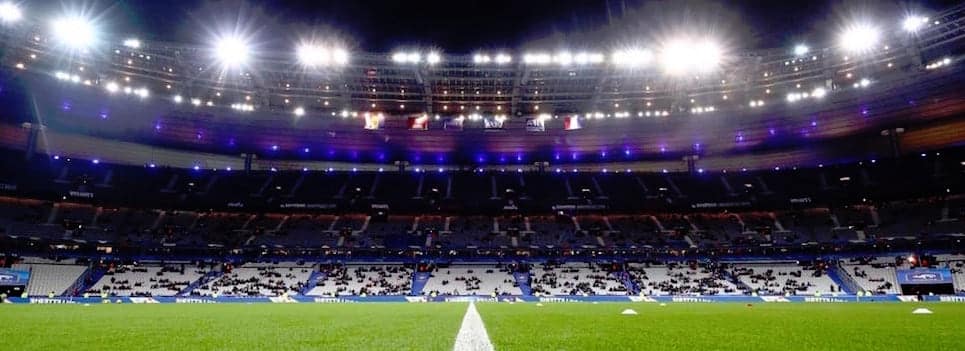Accusations and blame are flying around Europe following a fiasco at the UEFA Champions League Final last weekend in Paris, which saw the start of the game delayed when thousands of fans were trapped in poorly managed queues by ticketing issues. The game itself was delayed at the start to avoid the embarrassment of kicking off the Liverpool-Real Madrid contest with a global television audience with a half-full stadium.
French authorities have largely placed the blame on Liverpool fans, claiming that tens of thousands showed up in Paris without tickets, even saying that 30-40,000 fake tickets were intercepted, which caused the logjam.
In reality, there were 2,589 fake tickets – a high number, but a fraction of what French authorities initially claimed in the immediate aftermath of the embarrassing failures at the event.
From the New York Times:
Supporters faced multiple issues, including dangerous crushes, after being corralled into narrow spaces, and the final was delayed more than 30 minutes as the French riot police used tear gas and pepper spray on fans after appearing to lose control of the situation. At the same time, hundreds of local youths tried to force their way into the stadium, either through the turnstiles or by climbing over security fences. Officials estimated as many as 4,000 ticketless people may have succeeded.
Liverpool officials have pushed back hard against the implication that their fans showed up without tickets or in an unruly fashion, causing the issues. Tom Werner, the Liverpool chairman of Boston’s Fenway Sports Group, wrote a scathing letter to the French officials involved in the fiasco.
“I am writing to you today out of utter disbelief that a Minister of the French Government, a position of enormous responsibility and influence, could make a series of unproven pronouncements on a matter of such significance before a proper, formal, independent investigation process has even taken place,” he wrote.
“UEFA Champions League Final should be one of the finest spectacles in world sport, and instead it devolved into one of the worst security collapses in recent memory,” he concluded. “On behalf of all the fans who experienced this nightmare I demand an apology from you, and assurance that the French Authorities and UEFA allow an independent and transparent investigation to proceed.”
I have written at length about Gérald Darmanin and Amélie Oudéa-Castéra. This is who they are, their pasts, links to Macron, why they are lying about Liverpool fans, and why they are running scared of the fallout now.
Again, please and read and share it!https://t.co/CMmxdc0Qjv
— Daniel Austin (@_Dan_Austin) June 1, 2022
One central argument being made by French authorities is that Liverpool fans were primarily using hard tickets, at the team’s request, forwarding the standard argument that mobile-only tickets are more secure. But that conversation is missing a larger issue – the overly restrictive policies of UEFA with regards to ticket resale in the first place.
Whether 40,000 fans or 2,800 arrived at the stadium with fake tickets, as the early estimates claim, that means that those individuals overwhelmingly had turned to unauthorized resale options due to the event organizers banning resale entirely.
“Efforts by those seeking to stifle the existence of the secondary market will only lead to a black market, where resale goes back to the era of shady dealings and back-room operation where consumers venture at their own risk,” wrote Katie Gainer on TicketNews back in 2017, reporting on the findings from three economic professors who studied secondary ticket markets. “Rather than bringing fairness and ease to the ticket buying process in the name of battling “scalping,” such a move would be disastrous for the consumer.”
Instead of fans purchasing ticket from above-board, regulated ticket resale marketplaces where consumers are protected from fraud – or at minimum made whole if someone sells an invalid ticket to an event – they just grab from whatever source they can locate when a high-demand event such as the UEFA Champions League Final sees its organizers attempt to close out resale entirely.
Even before the event, signs were pointing at an upcoming disaster. Numerous fans were threatened for trying to resell real tickets they had received through the team lottery, including the potential for lifetime bans. Other fans were fleeced by people charging thousands for fake tickets. Arrests were made in some cases prior to the game, but the black market was obviously in place when the legitimate one was boxed out.
One thing is certain – soccer (football) fans were harmed by policies in place. Some were likely taken advantage of by unscrupulous actors when they turned to the black market for tickets because event organizers tried to ban ticket resale for an event where demand was far in excess of capacity.
UEFA has already said it will conduct a full investigation of the matter, with Liverpool officials demanding a formal apology at its conclusion.




